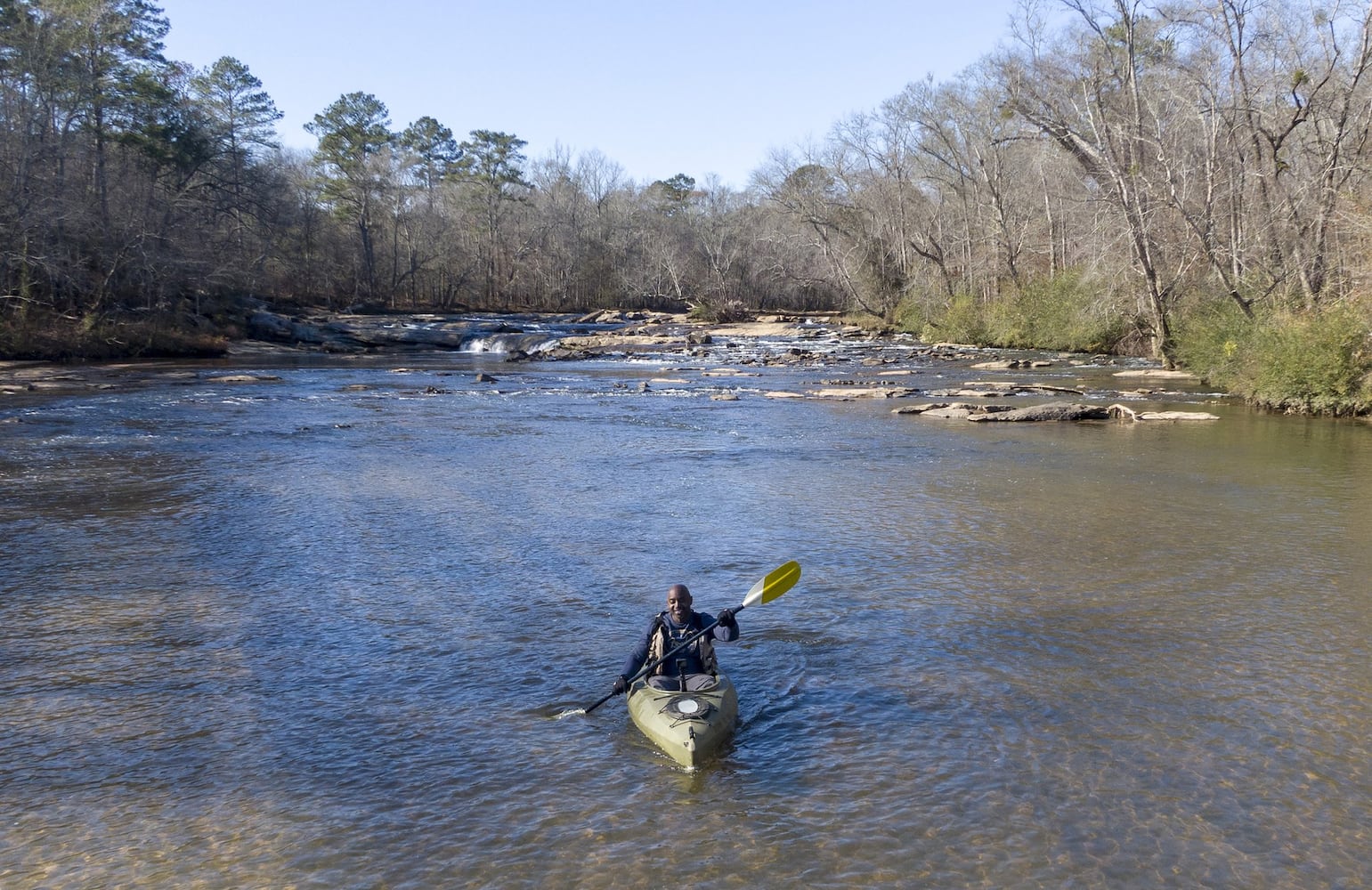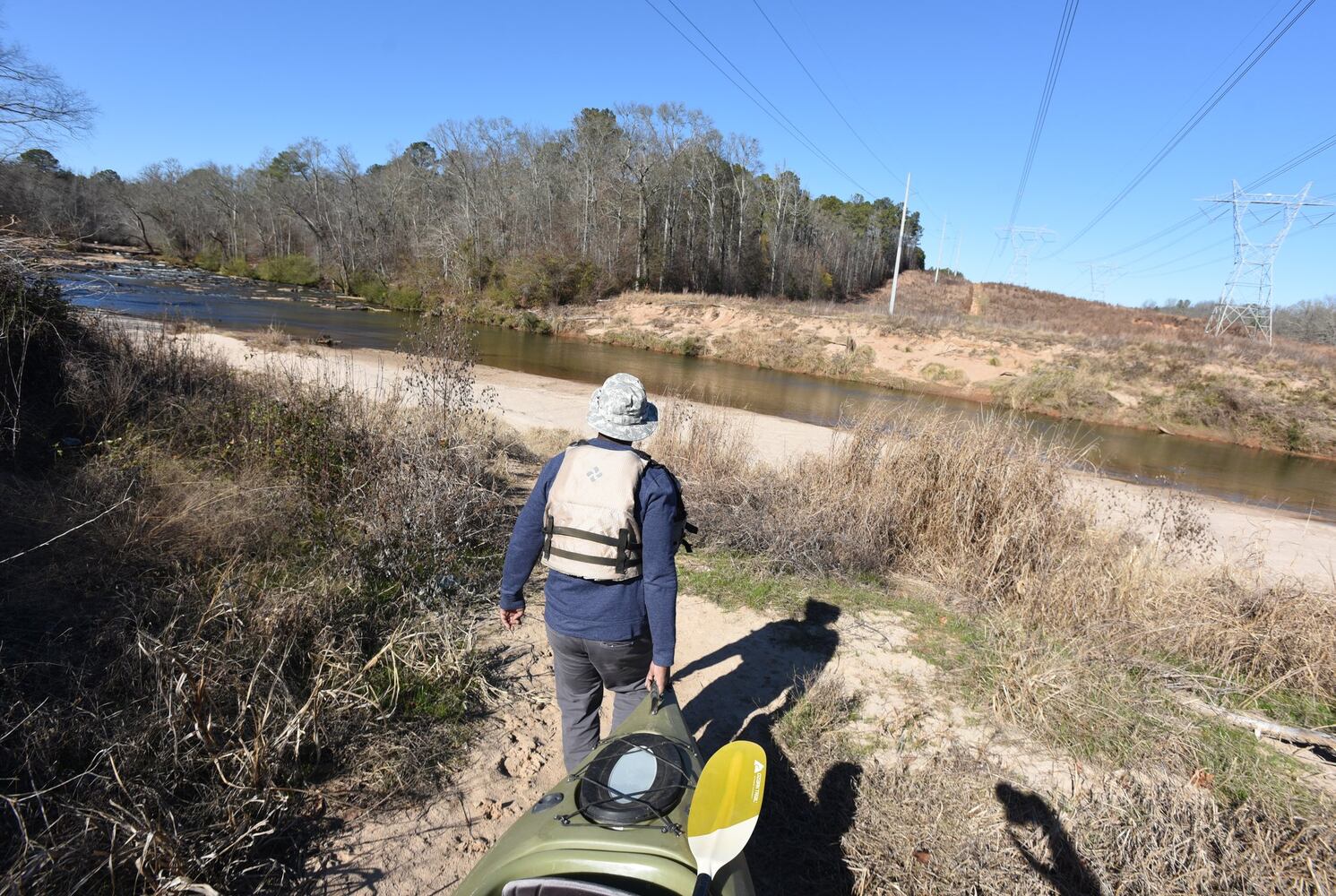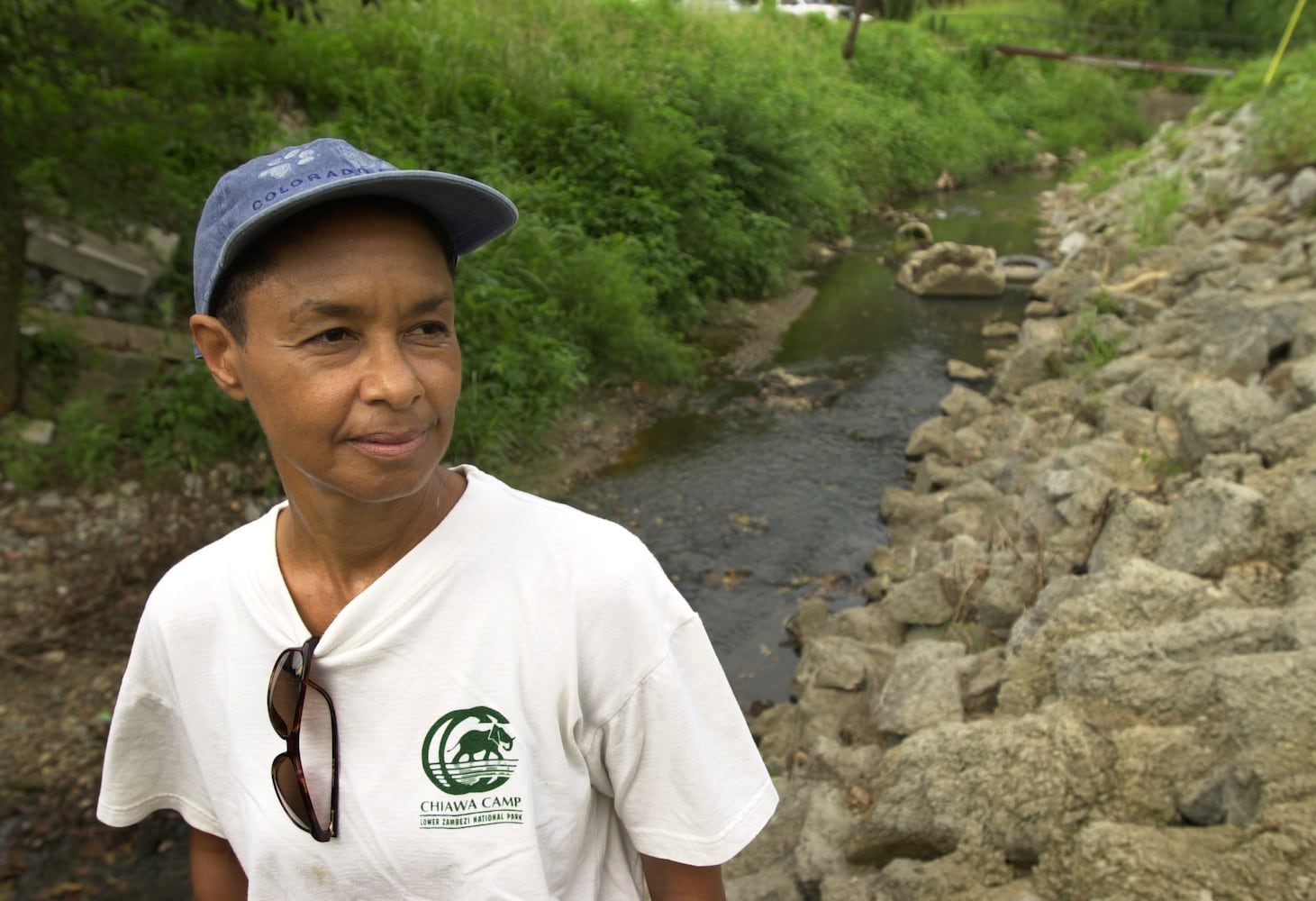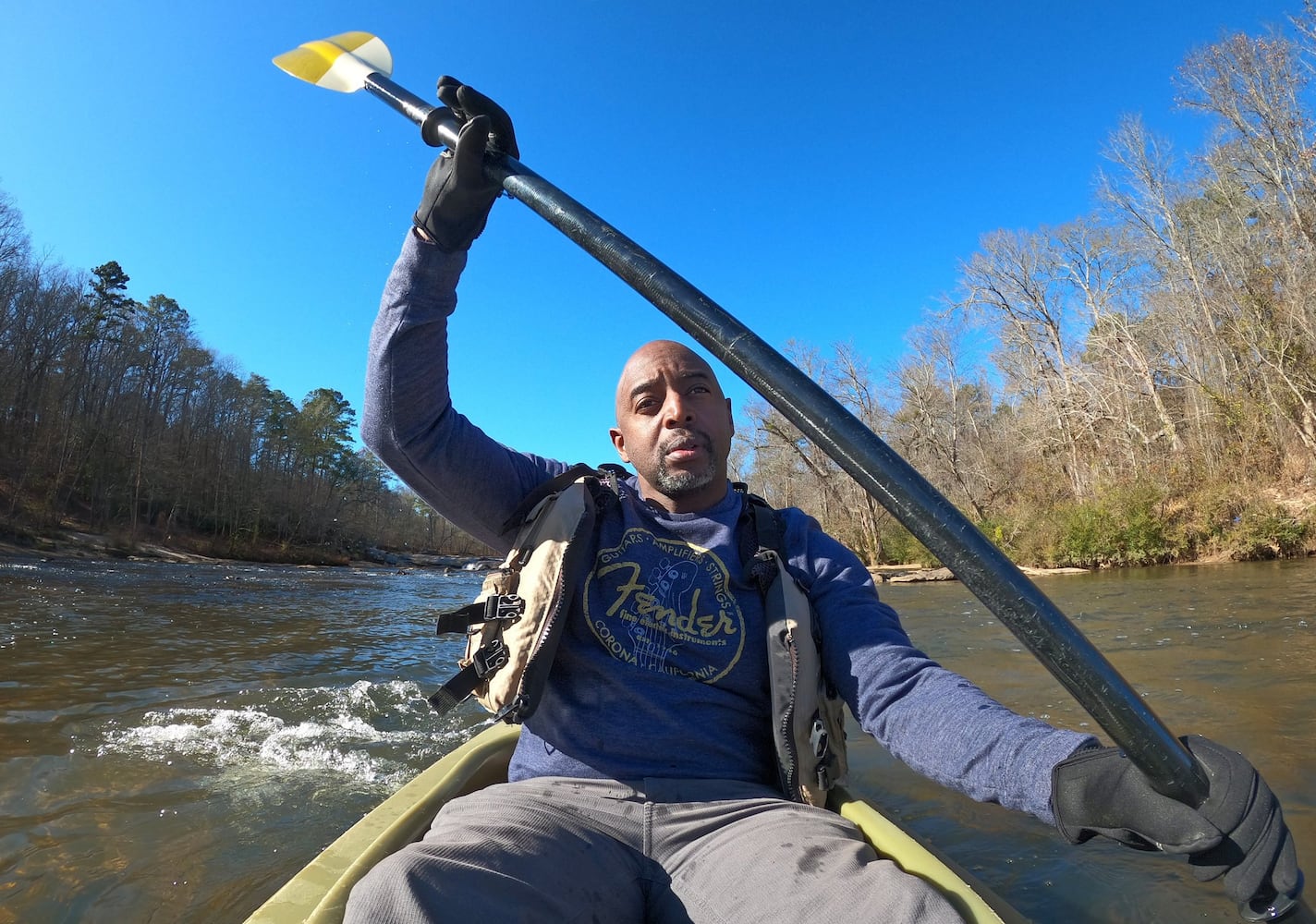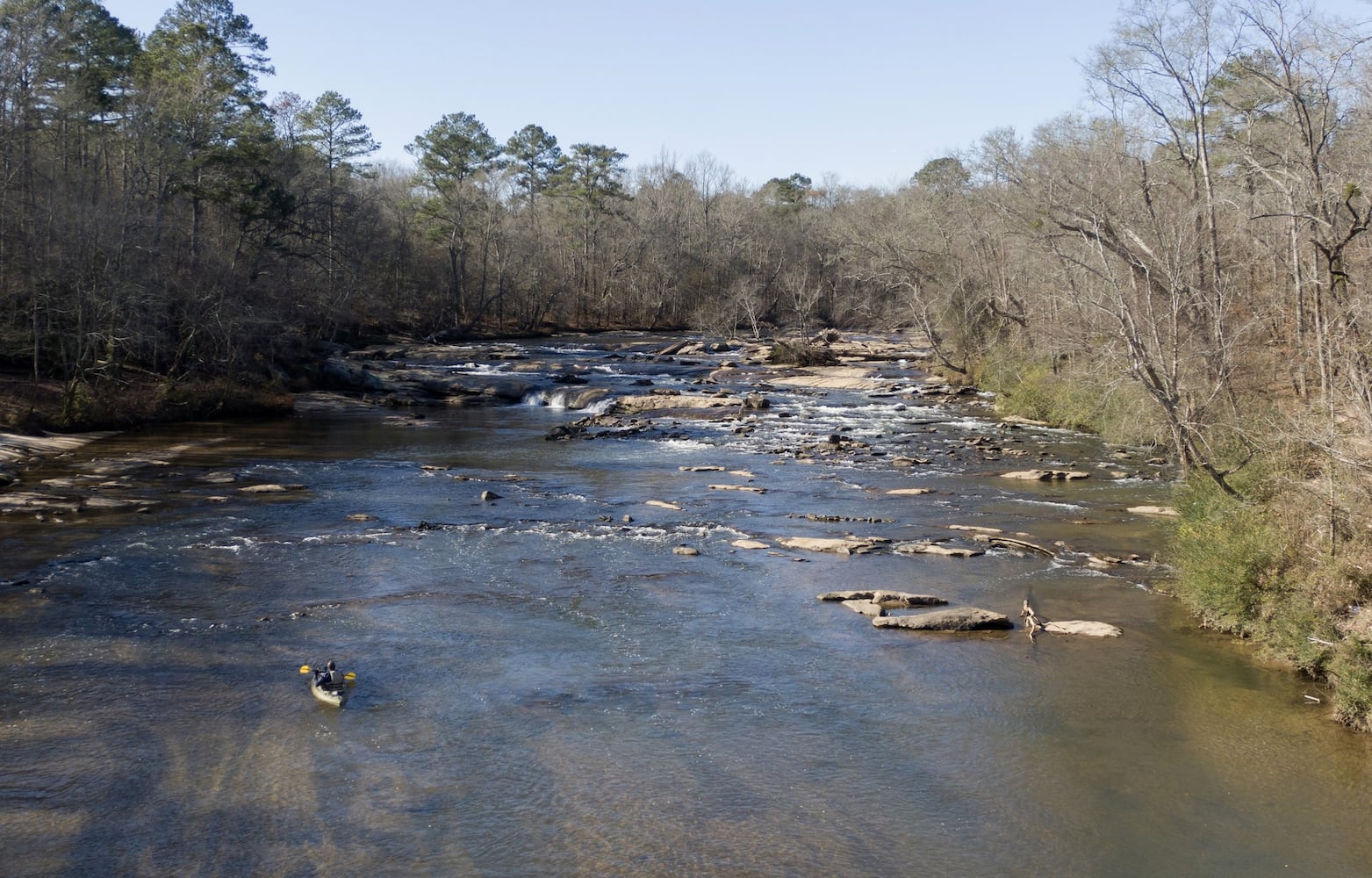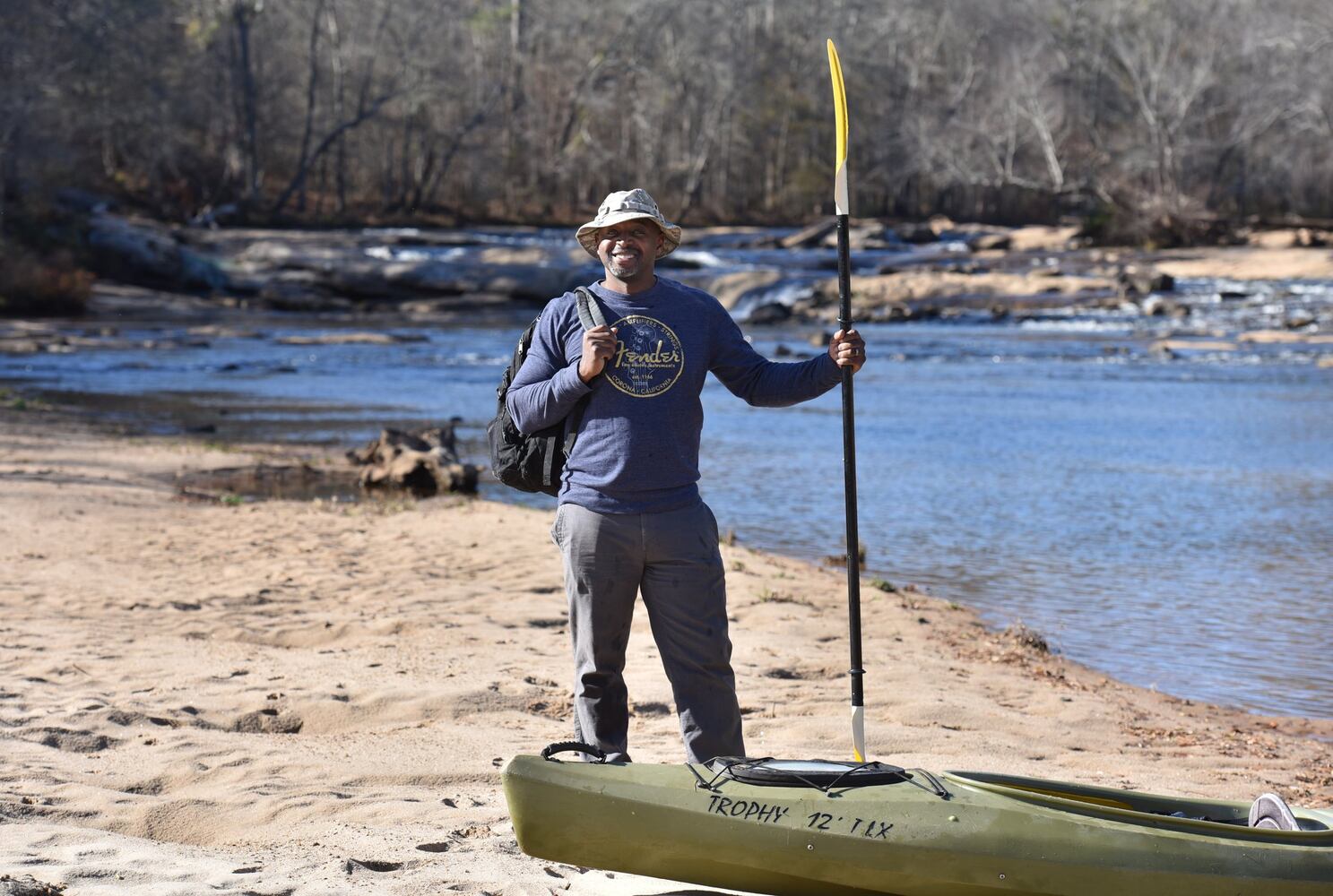Think about the most popular rivers in the Atlanta area, and names like the Chattahoochee and Yellow would probably come to mind. The South River? Not so much.
It doesn’t have the size or name recognition as some other local waterways, and it’s not as popular for kayakers or hikers. But supporters of the South River, who marvel in the natural beauty of this “hidden gem,” hope it might soon become a little less hidden.
“It’s very natural, and doesn’t really have a lot of people on it just yet. But it’s coming,” said Eric Grant, who lives about a mile from the river on the DeKalb-Rockdale line and often takes treks down it in his kayak.
The river quietly flowing under the region's famous tree canopy has been the subject of political battles between South River Watershed Alliance and DeKalb County over continued pollution and sewage spills. Its fans are drawn by the river's solitude, but say if South River were more often used for recreation, it might bring more funding and protection.
“In Georgia, if you don’t use waterways, you can’t show some public connection to water quality, it won’t improve,” said Jackie Echols, the board president of the watershed alliance. “You have to use the river.”
The South River traverses for about 60 miles from the city of East Point into DeKalb, before it winds south through five more metro Atlanta counties into Jackson Lake Reservoir in Butts County.
People who regularly paddle the river cherish its sheer natural beauty. Part of the South River traverses by Panola Mountain State Park, forming the border between DeKalb and Rockdale counties. Development surrounding the river near I-285 quickly gives way to less dense, more natural surroundings.
“You don’t hear much or see anything. You’re out in nature,” said Bert Skellie, a DeKalb resident who paddles the river. “It’s well worth experiencing.”
One time, Skellie came across a striking scene while paddling the river: About 20 vultures feeding on what was left of a deer. The scene was “a little gruesome, maybe, but it’s life out in nature.”
‘A lot of progress’
The South River doesn’t get daily maintenance. After it rains heavily, debris sometimes enters the river, and the water can rise quickly, making for dangerous paddling conditions, Skellie said. There’s also the issue of the invasive species privet along the river. It doesn’t have the same resources as larger rivers, like the Chattahoochee, which have full-time staff and riverkeepers, as well as devices that pick up trash in the river.
Echols and the watershed alliance sometimes lead groups on cleanups of the river banks. But the larger issue, she said, revolves around pollution of the river — not from trash, but from sewer spills in DeKalb County.
“We made a lot of progress. The big focus from the outset was to raise public support and awareness for the river,” Echols said, “primarily due to the pollution.”
For decades, residents around the South River have fought with the city of Atlanta and DeKalb County over sewage spills into the river. The watershed alliance has made headlines over its battles with DeKalb. From 2006 to 2008, federal and state environmental agencies fined the county hundreds of thousands of dollars because of sewer spills.
In 2010, the county entered into an agreement with the state Environmental Protection Division and federal Environmental Protection Agency to repair its aging sewer system by 2020. Officials have invested millions in projects aimed at curbing spills, but DeKalb CEO Michael Thurmond acknowledged it will not meet the 2020 deadline.
Echols said the county is still not doing enough to stop the sewer spills, which remain common after periods of intense rain. She said DeKalb should implement more technology that prevents pollution, and called on the environmental agencies to increase enforcement of the agreement.
The watershed alliance filed a lawsuit against DeKalb in September, urging a judge to designate DeKalb in violation of the federal Clean Water Act and force the county to pay civil penalties. The lawsuit listed 25 addresses where major spills have happened more than once.
Water quality in the river has improved over the last two decades, and Echols said it is safe enough for recreational use like kayaking. A spokesman for the state Environmental Protection Division said that at one spot along the river, the water’s oxygen content decreased starting in 1997, but steadily increased after 2000. A higher oxygen content is one indicator of a healthy waterway.
Since 2008, the oxygen levels in the South River have been relatively constant, the EPD said. However, the watershed alliance's website warns that sewer spills "continue to threaten" the river.
DeKalb County said 4.2 million gallons of wastewater entered the river and its streams in 2019. But officials have defended their efforts to curb pollution, saying the county has spent $16 million on sewer system improvements near the South River watershed, leading to a decrease in wastewater spills each year. DeKalb also said it processes and releases billions of gallons of clean, treated wastewater into the South River every year.
“DeKalb County continues to make progress in our stewardship of the environment and the South River ecosystem,” county CEO Michael Thurmond said in a statement.
More popular, more enforcement?
Echols and other South River fans believe increased recreational use of the waterway is key to getting the state to pay more attention to the water quality and increase enforcement of the county’s pledge to reduce sewer spills.
Under the state’s water quality standards, the South River’s use is currently designated as “fishing,” the default descriptor that means the river supports aquatic wildlife, and is safe for river activities like paddling. But Echols would like to see the designation upgraded to “recreation,” which she said would attract more people to the South River.
To that end, the watershed alliance often organizes group paddles of the river and are working to add more entry and exit points for kayaks and canoes. Officials from Rockdale, Henry and Butts county have also written letters to state officials in support of changing the water quality designation. Other local governments including Stonecrest and DeKalb County have invested to support paved paths along the river and entrypoints into the water.
» Follow DeKalb County News on Facebook and Twitter
But South River proponents acknowledge that more can be done to raise awareness about the natural marvel.
“If you’re just curious, if you’ve never done it before, there’s not much signage to say that it’s here,” Grant said, adding that there’s “not much development to even put the signage out there yet. It’s all coming in due time, I hope.”
Residents who use the South River have also been paying close attention to the discussions over a proposed land swap in DeKalb near Intrenchment Creek, which flows into the South River. The deal would allow Blackhall Studios, a movie studio company that owns swaths of land in South DeKalb, to build on a portion of Intrenchment Creek Park in exchange for donating nearby land to the county.
Residents said the land being offered up by the county is more ecologically rich than what it would be receiving. Environmental advocates like Echols also worry development on the park land near the river could cause issues with stormwater runoff, since the natural land helps protect the river.
Blackhall CEO Ryan Millsap, during a recent tour of the studios, told The Atlanta Journal-Constitution that most of the concerns are “negative spin from people that are just fundamentally, physically opposed to land exchanges,” and that the land he is willing to trade has an equal, if not better, natural value.
Thurmond’s office will ultimately decide whether to recommend the land swap deal for approval, though there is no estimate for when that might happen. But in the meantime, Echols has no plans to stop getting groups together for cleanups, hikes and paddles down the South River.
“The biggest hurdle for it is to overcome its history,” she said. “It’s a struggle, but it’s a good struggle.”
Wouldn’t you like to support our strong journalism? Your subscription helps us cover your communities in a way that no one else can. Visit https://subscribe.ajc.com/hyperlocal or call 404-526-7988 to begin or renew your subscription.
About the Author
Keep Reading
The Latest
Featured
